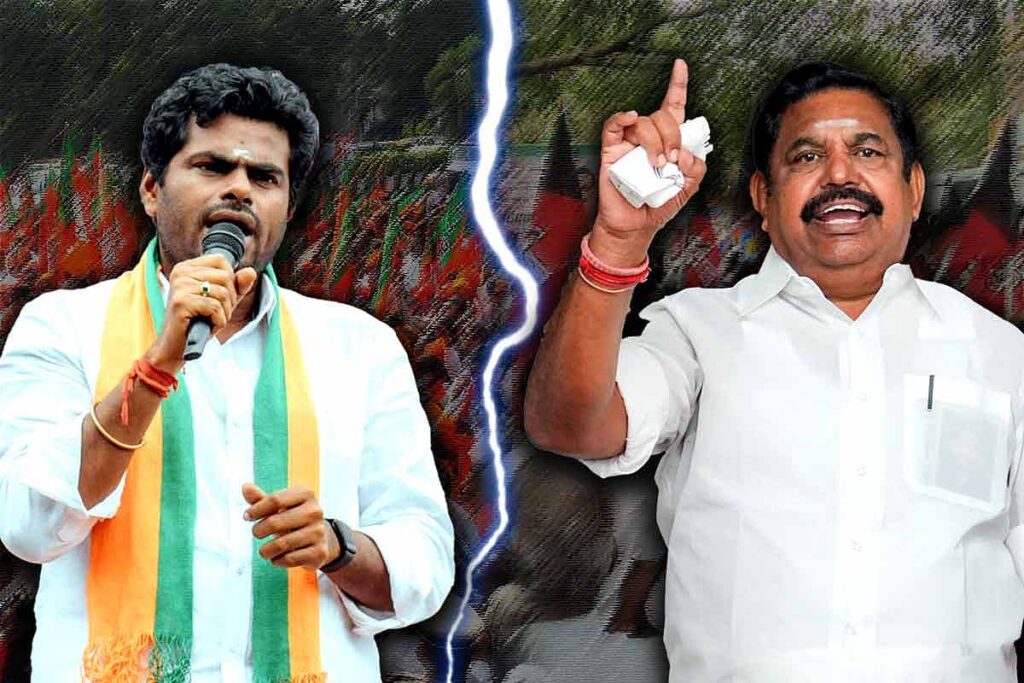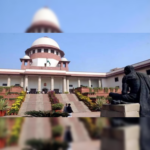AIADMK General Secretary Edappadi K. Palaniswami’s recent remarks have ignited discussions regarding the party’s potential alliances ahead of the 2026 Tamil Nadu Assembly elections. When questioned about a possible collaboration with the Bharatiya Janata Party , Palaniswami responded, “Wait for six months,” suggesting that a decision on alliances would be made closer to the elections.
This statement has led to widespread speculation about the AIADMK’s strategic plans. Historically, the AIADMK has both allied with and opposed the BJP in various electoral contexts. In September 2023, the AIADMK officially severed ties with the BJP-led National Democratic Alliance , announcing its intention to lead a separate front for the 2024 Lok Sabha elections. However, the party’s performance in that election was underwhelming, prompting discussions about future alliances.
Palaniswami has consistently emphasized that the AIADMK’s primary objective is to unseat the ruling Dravida Munnetra Kazhagam in the upcoming state elections. He has accused the DMK government of failing to fulfill electoral promises and has criticized its governance on multiple fronts. By keeping alliance options open, Palaniswami aims to consolidate opposition votes to challenge the DMK effectively.
The BJP’s stance on a potential alliance remains ambiguous. BJP state president K. Annamalai has been evasive when questioned about collaborating with the AIADMK, neither confirming nor denying the possibility. This uncertainty reflects the BJP’s cautious approach in a state where regional parties have traditionally dominated the political landscape.
Adding to the complexity, the Tamilaga Vetri Kazhagam , led by actor Vijay, has ruled out any alliance with the AIADMK for the 2026 elections. Prashant Kishor, the party’s special political advisor, stated that the TVK would contest independently, aiming to establish itself as a formidable force in Tamil Nadu politics. This development narrows the AIADMK’s options for forming a broad coalition against the DMK.
Political analysts suggest that Palaniswami’s “wait for six months” remark is a strategic move to buy time while assessing the evolving political dynamics. By delaying a definitive stance on alliances, the AIADMK can observe the performance and strategies of other parties, including the BJP and DMK, before committing to any coalition.
The DMK, under Chief Minister M.K. Stalin, continues to maintain a strong presence in the state. The party’s governance and policy decisions will likely influence the strategies of opposition parties. The AIADMK’s decision on alliances will be crucial in determining its ability to mount a serious challenge in the 2026 elections.
Grassroots sentiments and the perspectives of AIADMK cadres will also play a significant role in shaping the party’s alliance decisions. The leadership must balance the aspirations of its base with pragmatic electoral strategies to enhance its prospects.
As the political scenario in Tamil Nadu evolves, all eyes will be on the AIADMK’s next moves. Palaniswami’s calculated ambiguity keeps both supporters and opponents guessing, setting the stage for intricate political maneuvers in the lead-up to the 2026 Assembly elections.
The AIADMK’s approach to alliances will not only impact its electoral fortunes but also influence the broader political dynamics in Tamil Nadu. The party’s decisions in the coming months will be pivotal in shaping the state’s political landscape for years to come.
In this context, Palaniswami’s “wait for six months” comment serves as a reminder of the fluid nature of political alliances and the strategic calculations that underpin them. As parties position themselves for the 2026 elections, the AIADMK’s choices will be closely watched by political observers and the electorate alike.
The unfolding political narrative in Tamil Nadu underscores the importance of strategic patience and adaptability in regional politics. The AIADMK’s alliance decisions will be a testament to its political acumen and its commitment to reclaiming power in the state.
As the countdown to the 2026 Assembly elections begins, the AIADMK’s strategies, alliances, and policy positions will be critical factors in determining its success. Palaniswami’s leadership during this period will be instrumental in navigating the complex political terrain and steering the party toward its goals.




 Supreme Court Asks EC on Disqualification Periods
Supreme Court Asks EC on Disqualification Periods 